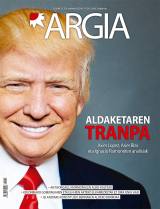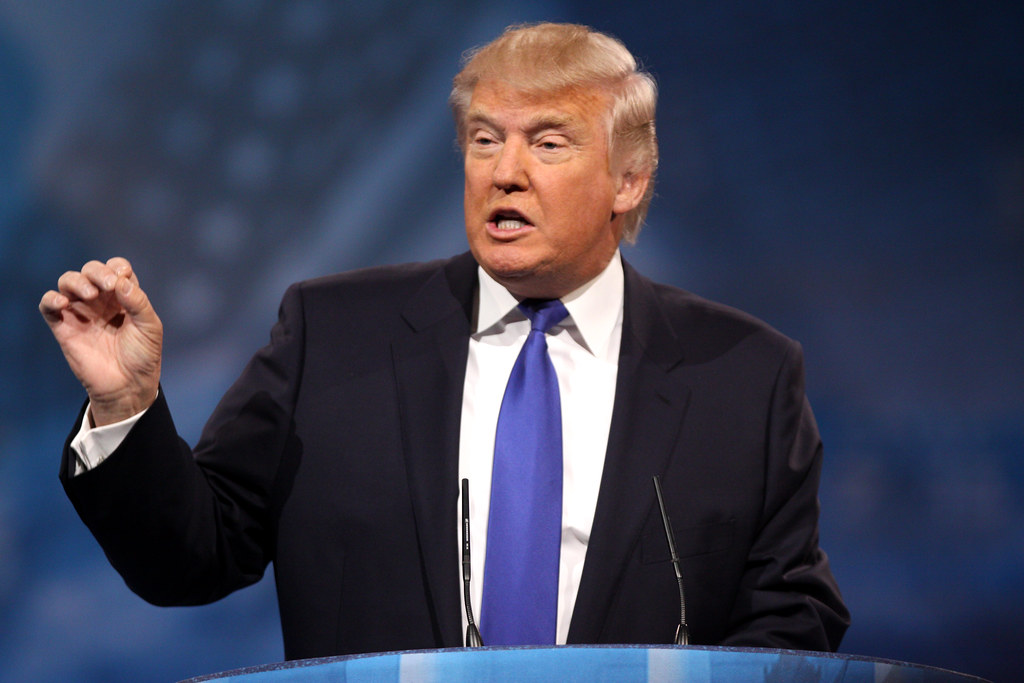It's the economy, stupid.
- Professor David Laibson explained the day after the elections at a round table at Harvard University that the economy has been of great importance in understanding the support Donald Trump has received. Edison Research for the National Election Pool questioned 24,537 people who had gone through the polls on election day. Respondents had to identify among four options the most important issue of the elections: 52% opted for the economy as the main key element, 18% for terrorism, 13% for foreign policy and 13% for immigrants.

Among those who rated the economic situation as excellent, 16% voted for Trump and 19% of those who responded that the situation was good. Trump was backed by 55% of those who believed the situation was good (neither good nor bad), while 79% of those who felt the situation was bad defended the Republican candidate. This has been particularly successful among whites without university studies (67%), who are the ones who have seen the most steps back in their socioeconomic situation. The idea of the American dream is that future generations of the family will live better, but that has long been broken down among whites without university studies.
People who do not have a college degree are underestimated in many areas of power in the United States, such as the economy, politics, culture, the media and the elites of political parties. That is why your concerns and concerns are not very much on the political agenda. In the United States, social inequalities have increased for 50 years, and in the last 30 years the pace has accelerated a lot. To explain this, Laibson focused on the development of wages by level of education: the wages of those who have undergraduate studies have experienced great growth in recent decades and there has only been an increase in the difference compared to those who do not have undergraduate studies.
The poll of the election day also asked about the economic situation in which the family finds itself. Only 24% of those with a better situation today support Trump, 46% of those with a similar situation and, on the contrary, 78% of those living worse. Regarding the economic expectations of the future family, only 63% of respondents who had poor prospects opted for Trump as a candidate.
This data shows that the unofficial motto that Bill Clinton won his father Bush was once again true: it's the economy, it's stupid. Trump has launched messages of loyalty to the conservative voter, such as the rejection of abortion, tax cuts or arms control. But what is truly new is to identify and put at the forefront the main losers of neoliberal globalisation: immigrants, jobs in industry, free market agreements, criminality, accessible health care, an American dream (mobility between classes), national pride, dictatorship
of financial powers, stabilishmint, etc.
The strategy that Trump has used has therefore been effective. He has won the elections, despite opposition from the media, the factual powers and a part of his party. Like the populist right-wing, Trump has broken with the presidential elections in which coca Cola and Pepsi are chosen. It has broken with the only acceptable ideology of the extreme progre centre that has prevailed in the West. But if everything is to be said, the Democrats have contributed a great deal. Hillary Clinton personifies neoliberal globalization, stabilishmint and corruption, and you can't imagine a worse candidate than him.
As a sign that the Democratic disease is on the Western hegemonic left, all the leftist groups in the European Parliament have supported Hillary Clinton with few critical views. There has been a tsunami of propaganda in favour of the Democratic candidate, which at times has remained in the twenty-first century. It seemed like we were standing before a 15th-century Emma Goldman. But the reality is very different. To support Clinton was to campaign on Wall Street so that the candidate who defends the interests of Democrats would be re-elected. Campaigning for Clinton was betting on the most warlike imperialism. But apparently, the deaths of Clinton, the countries that he has destroyed or the coups of state that he has protected have not been sufficient reason for the Left to reject his support.
Hillary Clinton is well connected to the discourse and image of political convenience. As long as it does not say barbarism, whatever it does, we live in the society of appearance. But if the aspect is important to the middle and upper classes, to the working class and, above all, to the impoverished, it is not so important. That is why, if the Western Left does not take the economic agenda and the defence of the interests of the working class seriously, they will remain in the hands of the populist right, along with the rest of its reactionary measures.
49 urte preso pasa ondoren, libre utzi dute Leonard Peltier AEBetako ekintzaile autoktonoa. Otsailaren 18 honetan heldu da bere senide eta lagunen artera 80 urte dituen preso-ohia.
Palestinan genozidioa, Europan gerra eta potentzia nuklearren artean tentsioa. Ez daukagu berri on askorik emateko, baina bada bat, hondamendi orokorretik eratorria, aipatzea merezi duena: aldeko baldintzak sortzen ari dira kontrainformaziorako, informazio independenterako,... [+]
Zutabe hau idazten nengoela, gaia aldatu behar izan dut, nire arreta osoa harrapatu dutelako Trumpen muga-zergek. Azalpen gutxi beharko duzue, leku guztietan da berria, Txinako produktuei %10eko zerga eta Kanadako eta Mexikoko produktuei %25eko muga-zergak jarri dizkie. Trumpek... [+]
























